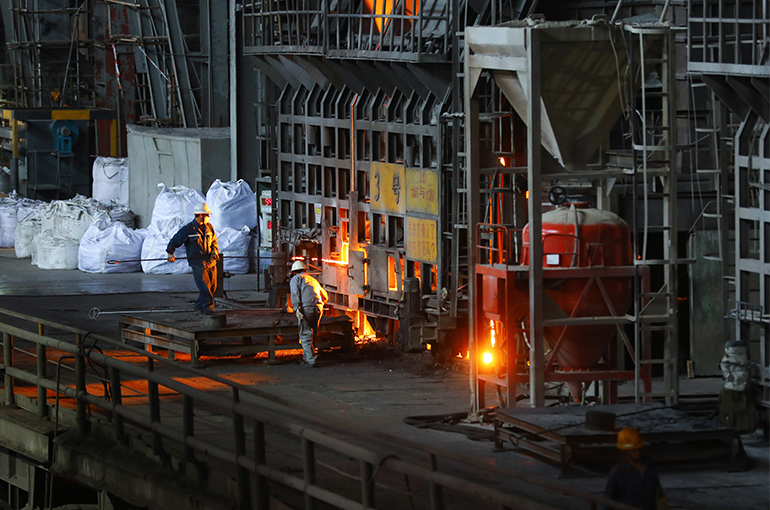 China’s Steel Prices Keep Falling Despite Peak Season for Demand Amid Overcapacity
China’s Steel Prices Keep Falling Despite Peak Season for Demand Amid Overcapacity(Yicai) March 28 -- Prices of steel products in China continue to fall this year because the overcapacity in the industry has not improved, despite entering their traditional peak season for demand.
The most actively traded futures contract for rebar on the Shanghai Futures Exchange closed at CNY3,479 (USD481) yesterday, down over 13 percent from the beginning of the year. Rebar is a reinforcing steel used as rods in concrete.
China’s construction steel and hot-rolled steel coil inventories rose 4.5 percent and 28 percent to about 13.6 million tons and 4.1 million tons, respectively, in the middle of the month from a year earlier, according to data from Sublime China Information. Meanwhile, manufacturers’ inventories are up between 10 percent and 20 percent from the average level in previous years.
Profits at most listed Chinese iron and steel companies that have already issued financial statements for last year have declined to various extents. While industry leader Baoshan Iron and Steel, better known as Baosteel, reported only a 1.5 percent decline in net profit, small market players Xinyu Iron and Steel and Hangzhou Iron and Steel saw their net profits shrank over 50 percent.
The remaining listed Chinese iron and steel companies that have released their earnings reports or forecasts for 2023 were in the red last year. For example, Angang Steel turned a profit into a loss last year. Meanwhile, net loss at Xinjiang Bayi Iron and Steel narrowed, and that at Bengang Steel Plates widened.
Steel prices are expected to remain low in the first half of the year because the real estate market demand has not yet shown signs of turnarounds, and the investment in infrastructure projects has not yet begun, Zhou Fuhan, a ferrous metal analyst at Nanhua Futures, told Yicai.
However, Zhou is prudently optimistic about the steel market for the second half of the year because new investment in infrastructures is expected to have positive impacts, and the various real estate supporting policies will likely mitigate the downward trend in the market.
“In the second half of the year, the demand for steel from the real estate sector will likely improve,” Chen Kexin, chief analyst at the Lange Steel Information Research Center, told Yicai. Changes in the housing market’s demand will greatly impact steel prices because the real estate sector consumes around 20 percent of the country’s crude steel output, he added.
With the implementation of new supportive policies, the downward trend in real estate investment is expected to end by the second half of the year, Chen said, noting that the real estate sector’s demand for steel will also gradually improve accordingly.
Close attention needs to be paid to the variations in the transaction volume and value of commercial property sales and to whether there will be additional investment in infrastructure projects in the future, which are two indicators to evaluate the degree of recovery in demand for steel, Zhou noted.
Editors: Tang Shihua, Futura Costaglione